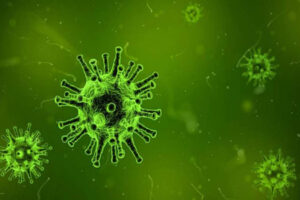This blog’s comments will focus on the medical profession’s past and present attitudes towards substance dependency within its own ranks. I cannot comment (due to my lack of experience) on nurses’/hospitals’ attitudes towards addicted nurses, nor can I comment on psychologists’ attitudes towards addicted psychologists. The following comments reflect my own personal experiences and those of other addicted physicians with respect to doctors’ reactions to their addicted colleagues. I suspect, however, that these experiences may apply to other health professionals (and to hospitals) as well.
The Problem
Some of the most hostile, cruel and illiterate comments made to me regarding my addiction have come from members of the medical profession – a group that, theoretically at least, is supposed to be knowledgeable, compassionate, open-minded and well-read. While MDs who are experts in the field of substance dependency do not fall in this category, they represent only a tiny minority. The rest, unfortunately, receive minimal, if any, training in addiction medicine throughout medical school. I certainly never received training. My understanding is that training in this field isn’t much better today.
The situation wouldn’t be half as bad if it were simply due to ignorance on display but as already mentioned, the cruel comments endured by addicted doctors points to something far worse than mere lack of knowledge. “Oh, it’s the junkie,” said one family doctor to me over the phone when I called to inform him that I was taking a leave of absence to enter a rehab facility and seek treatment. Other addicted MDs have relayed similar, if not identical, comments and reactions.
The practice of using coded acronyms in chart entries to mock intoxicated patients (for example, in an emergency room setting) has been a disgraceful occurrence. Even after some perpetrators were called out and publically exposed, this practice has continued in one form or another, as evidenced by recent news reports. In other words, the underlying attitude persists of physicians stigmatizing people with addiction. These attitudes often intersect with attitudes of racism, and negative outlooks towards various marginalized groups.
It’s Time to Re-evaluate
Those in the medical profession who still harbour these backward views and feelings need to ask themselves why they went to medical school in the first place. I would encourage them to become acquainted with the science which convincingly supports the disease model of addiction.
Furthermore, they need to ask themselves why they harbour these hostile feelings in the first place. Do they have a relative – perhaps a parent, a son, a daughter, a wife or husband – with alcohol problems or prescription/street drug issues? Perhaps they themselves have experienced addiction? Hostility towards addicts / alcoholics sometimes stems from these kinds of unresolved feelings.
Or is it that they would like to view themselves (since, after all, they have a medical degree) as god-like and invulnerable, free of psychological flaws, moral defects or human frailties? If this is the case, then any of their colleagues with those “defects” would unpleasantly reflect back to them their own vulnerabilities and frailties.
Besides increasing medical school education and training in the field of substance dependency, I don’t know what else to suggest to correct this oddly pervasive attitude within the medical profession. It is however profoundly discouraging to observe that this hostility towards one’s own colleagues is actually more prevalent, persistent and intense than that of the general public towards alcoholics and addicts in the general population. One certainly expects more in the way of compassion from doctors with respect to the treatment of their sick colleagues (and, by extension, of the general population of alcoholics/addicts), all of them in need of help.




Leave a Reply